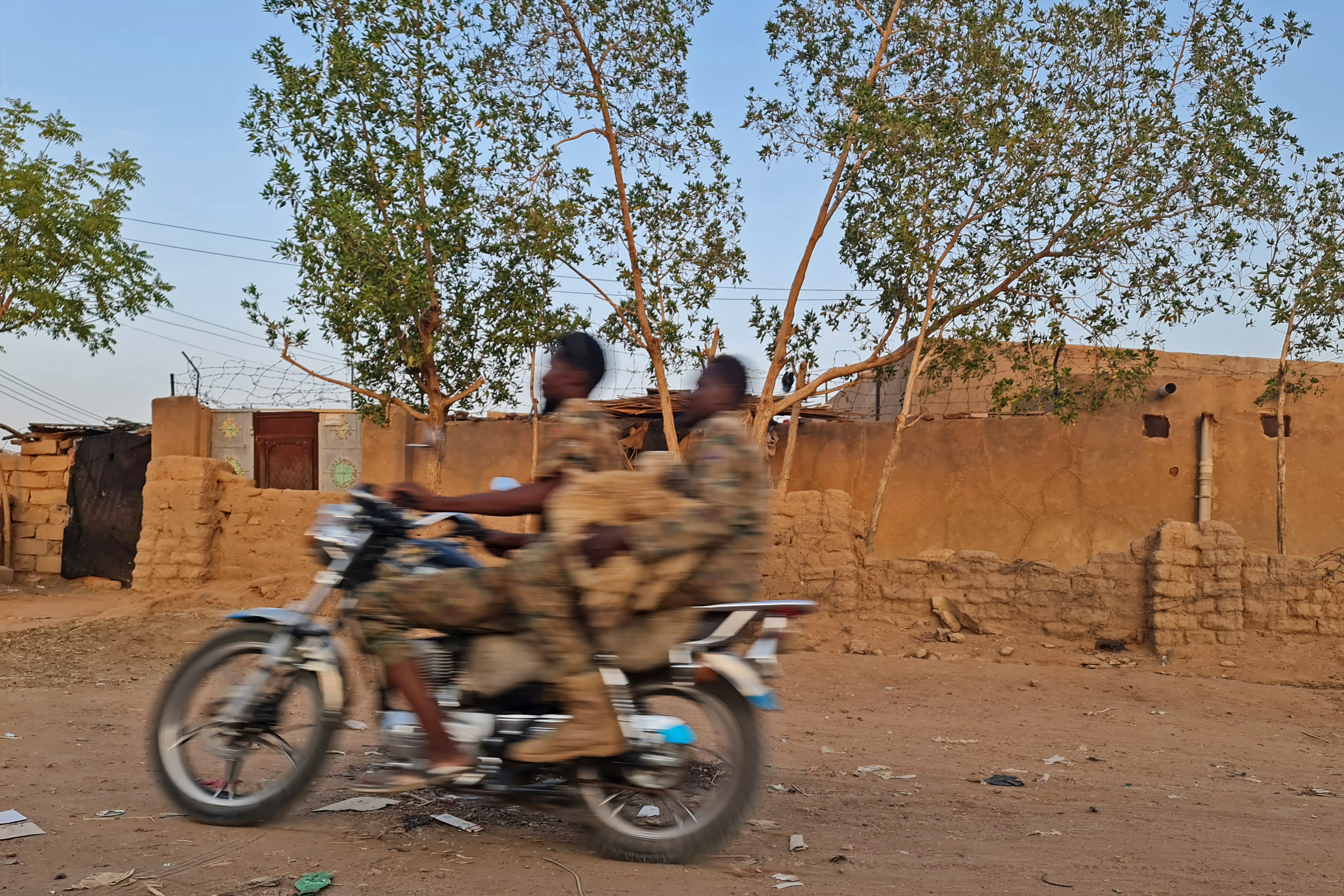
Sudan’s army chief, General Abdel Fattah al-Burhan, has announced a “unilateral” ceasefire on the first day of the Muslim Eid al-Adha holiday.
In a televised address on Tuesday, Burhan also called on young men to defend the country either at home or by joining the armed forces.
“The conspiracy requires of everyone to be awake and ready to respond to the existential threats to our country, and so we call on all the young men and who can defend to not hesitate to play this role, either from where he lives or by joining the armed forces,” Burhan said during the speech.
The ceasefire announcement comes after Burhan’s rival and head of the Sudanese paramilitary Rapid Support Forces (RSF), General Mohamed Hamdan Dagalo, commonly known as “Hemedti”, declared a two-day “unilateral” ceasefire in its battle against the army.
“We are declaring a unilateral ceasefire, except for self-defence situations, on the eve of Eid and on the day of Eid al-Adha,” the RSF chief said on Monday in an audio recording posted on Facebook.
Hemedti expressed hope the Eid holiday would provide an opportunity for reconciliation among the Sudanese people.
Acknowledging the challenging humanitarian conditions caused by the war, he said, “We hope to emerge from the war more united and stronger.”
Eid al-Adha, or the Festival of Sacrifice, is one of the most important Muslim holidays, marking the culmination of the annual Hajj (pilgrimage) in Saudi Arabia.
Thousands killed, millions displaced
Sudan has been ravaged by fighting between the army and the RSF since mid-April in a conflict that has killed at least 2,000 civilians and wounded many more.
The International Organization for Migration (IOM) has estimated the conflict has displaced almost two million people internally, and more than 600,000 have fled to neighbouring countries.
A record 25 million people – more than half the country’s population – are in need of aid and protection, according to the United Nations, which said it has received only a fraction of the necessary funding.
The capital, Khartoum, and el-Geneina, the capital of West Darfur state, have been the worst affected by the war, though tensions and clashes escalated last week in other parts of Darfur and in Kordofan in the south.
On the eve of the Eid al-Adha holiday, fighting raged in the Sudanese capital after paramilitaries seized Khartoum’s main police base. Witnesses said the RSF attacked army bases in central, northern and southern Khartoum.
Elsewhere in the country, new fronts have opened against the army from a local rebel group in South Kordofan state, south of the capital, as well as in Blue Nile state on the border with Ethiopia.
Several failed ceasefire initiatives have been announced since the conflict broke out on April 15, with the warring parties accusing each other of violating the agreements.
In recent days, fighting has intensified after a series of ceasefire deals agreed at talks led by the United States and Saudi Arabia in Jeddah failed to stick.







